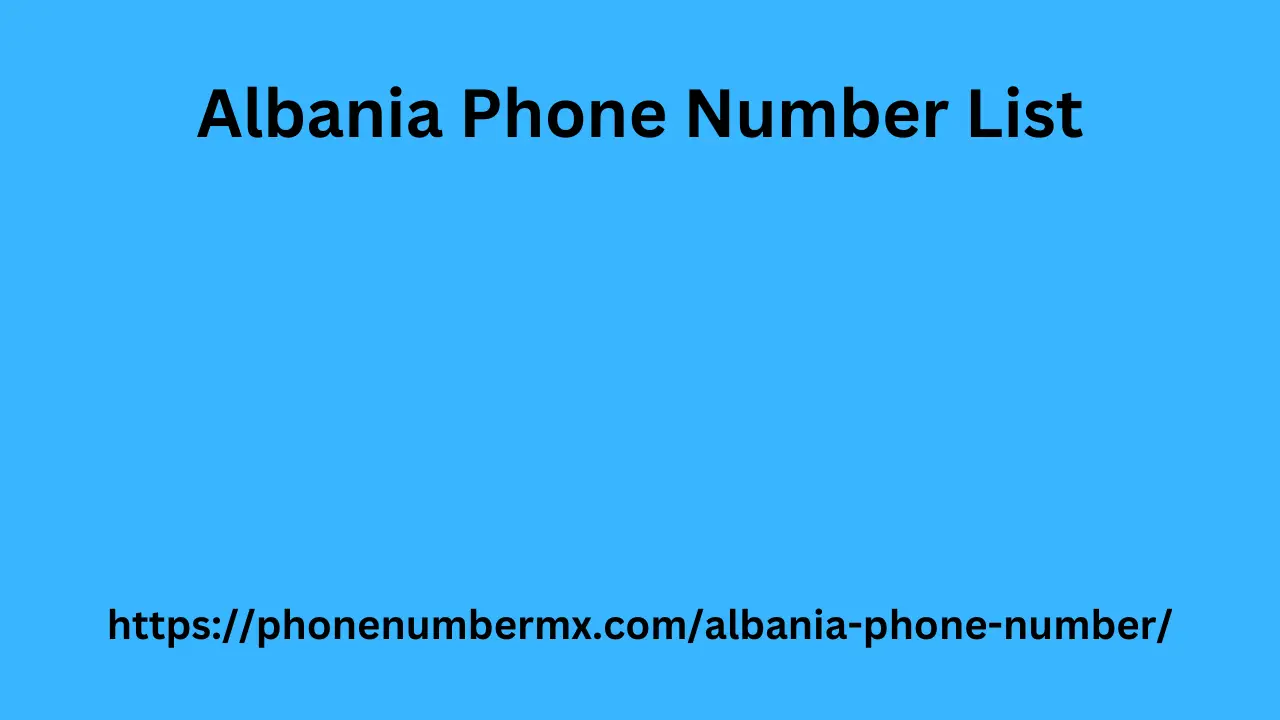In an era where communication is instantaneous, the importance of maintaining privacy cannot be overstated. For individuals and businesses using USA numbers, understanding the implications of privacy is crucial. This guide will explore how USA numbers intersect with privacy concerns, the regulations governing them, and practical steps to protect your information.
Understanding USA Numbers
- What is a USA Number?
Definition
A USA number typically refers to a phone number issued within the United States, which can be used for personal or business communication. These numbers can be landlines, mobile Albania Phone Number List numbers, or VoIP (Voice over Internet Protocol) numbers.
Types of USA Numbers
Local Numbers: Assigned to specific geographic areas.
Toll-Free Numbers: Allow callers to reach businesses without incurring charges.
Vanity Numbers: Customized numbers that are easy to remember (e.g., 1-800-FLOWERS).
- Why Use a USA Number?

Enhanced Communication
USA numbers facilitate easier communication with clients, customers, and contacts within the U.S., making it essential for businesses aiming to establish a local presence.
Credibility and Trust
Having a USA number can enhance credibility, as it signals to customers that you are serious about your business operations in the U.S.
Privacy Management
Using a USA number allows individuals and businesses to manage their privacy effectively, separating personal and professional communications.
Privacy Concerns Related to USA Numbers
- Personal Information Exposure
Caller ID and Tracking
When you use a USA number, your phone number can be displayed on caller ID systems, making it easy for others to identify you. This can lead to unwanted calls or harassment.
Data Breaches
Telecommunication companies can be targets for data breaches. If your USA number is compromised, your personal information may be at risk.
- Telemarketing and Spam Calls
Automatic Dialing Systems
Many telemarketers use automated dialing systems to contact individuals. If your USA number is publicly accessible, you may receive unsolicited calls.
Do Not Call Registry
While the National Do Not Call Registry can help reduce unwanted calls, it does not eliminate them entirely. Understanding how to navigate these systems is essential for maintaining privacy.
Regulations Governing Privacy for USA Numbers
- Federal Communications Commission (FCC) Regulations
Overview of FCC Rules
The FCC regulates telecommunications in the U.S. and implements rules to protect consumer privacy, including regulations on robocalls and telemarketing.
Robocall Rules
Robocalls must comply with strict regulations, including obtaining consent from the recipient before making automated calls.
- Telephone Consumer Protection Act (TCPA)
Purpose of the TCPA
The TCPA was enacted to reduce the number of unsolicited calls and protect consumers from invasive telemarketing practices.
Key Provisions
Requires prior consent for automated calls and texts to cell phones.
Allows consumers to file lawsuits for violations, potentially resulting in significant penalties for offenders.
- State Regulations
Variability Across States
Privacy laws can vary significantly from state to state. Some states have enacted additional protections beyond federal regulations.